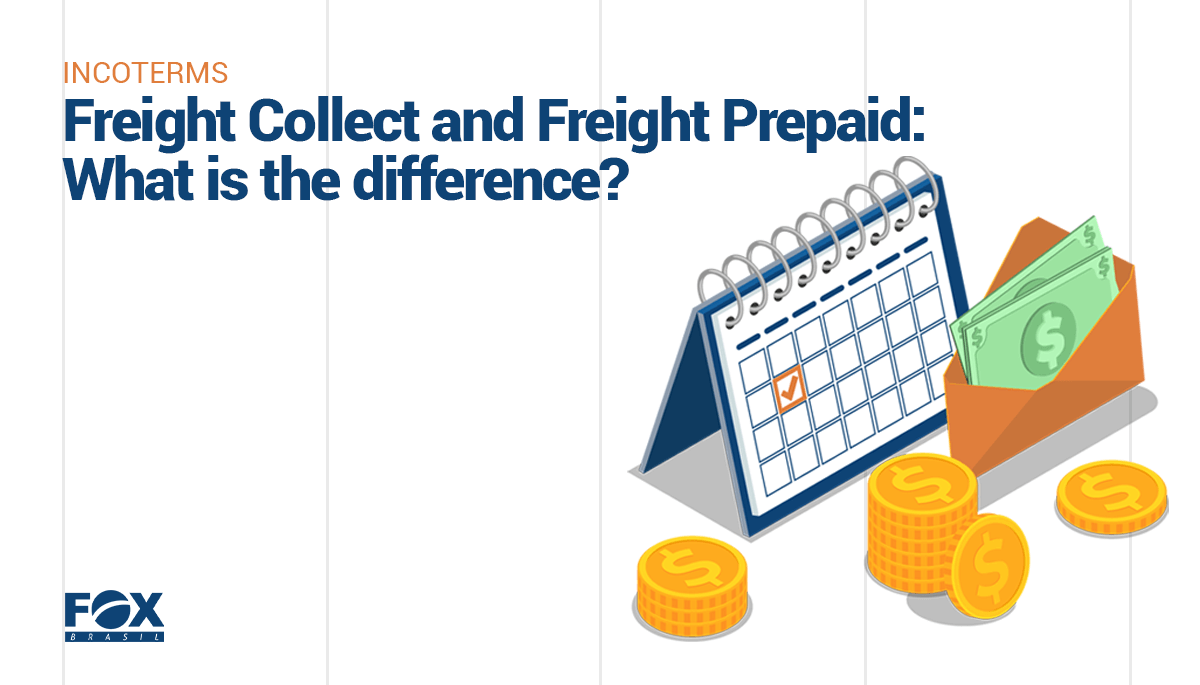Freight Collect and Freight Prepaid: What is the difference?

Understand Logistics & Freight
When it comes to shipping goods, understanding the various payment terms and conditions is crucial for both shippers and consignees. Two common terms that often come up in the world of logistics are “freight collect” and “freight prepaid.” While they may sound similar, these terms have distinct meanings and implications. In this blog post, we’ll explore the differences between freight collect and freight prepaid, shedding light on their significance in the shipping process.
What is Freight Collect?
Freight collect, also known as “collect on delivery” (COD), is a shipping arrangement where the consignee (the recipient of the goods) is responsible for paying the shipping charges upon delivery. In this scenario, the shipper arranges for the transportation of the goods and covers the initial costs involved in shipping, such as pickup, transportation, and delivery. However, instead of paying these charges upfront, the consignee is invoiced and required to reimburse the shipper or carrier for the freight costs.
The freight collect option is commonly used when the consignee is the party responsible for the transportation expenses, either due to a pre-established agreement or as per the terms of a sales contract. This approach allows the consignee to have control over the shipping process and choose their preferred carrier while ensuring that the freight charges are paid upon receipt of the goods.
What is Freight Prepaid?
On the other hand, freight prepaid refers to a shipping arrangement where the shipper (the sender of the goods) pays the freight charges in advance. In this scenario, the shipper takes responsibility for arranging and paying for the transportation costs from the point of origin to the final destination. The shipper typically includes the cost of shipping in the overall invoice for the goods, and the consignee does not have any additional payment obligations for the transportation.
Freight prepaid is often used when the shipper wants to simplify the shipping process for the consignee. By paying for the transportation upfront, the shipper retains more control over the shipping logistics and can ensure that the goods reach the consignee without any delays or potential issues related to payment.
Key Differences between Freight Collect and Freight Prepaid
- Payment Responsibility: The primary difference between freight collect and freight prepaid lies in the party responsible for paying the shipping charges. In freight collect, the consignee is responsible for the payment, while in freight prepaid, the shipper pays for the transportation costs.
- Financial Risk: With freight collect, the consignee bears the financial risk of the goods until the payment is made. If the consignee fails to pay the freight charges, the shipper or carrier may have the right to hold the goods until payment is received. Conversely, with freight prepaid, the shipper assumes the financial risk, as they have already paid for the transportation.
- Control over Carrier Selection: Freight collect allows the consignee to choose the carrier for the transportation, giving them greater control over the shipping process. In contrast, freight prepaid enables the shipper to have more control over the carrier selection, ensuring that the chosen carrier aligns with their requirements and preferences.
- Administrative Effort: Freight collect may involve additional administrative efforts for the shipper or carrier to invoice and collect payment from the consignee. In freight prepaid, the shipper streamlines the process by paying the transportation charges in advance, reducing administrative tasks and potential delays caused by payment processing.
Understanding the differences between freight collect and freight prepaid is essential for businesses involved in shipping goods. Whether you are a shipper or a consignee, comprehending these terms allows you to make informed decisions about your shipping arrangements. Freight collect places payment responsibility on the consignee, while freight prepaid requires the shipper to cover the transportation costs in advance. By choosing the appropriate option, you can streamline the shipping process, minimize financial risks, and ensure a smooth and efficient delivery of goods.